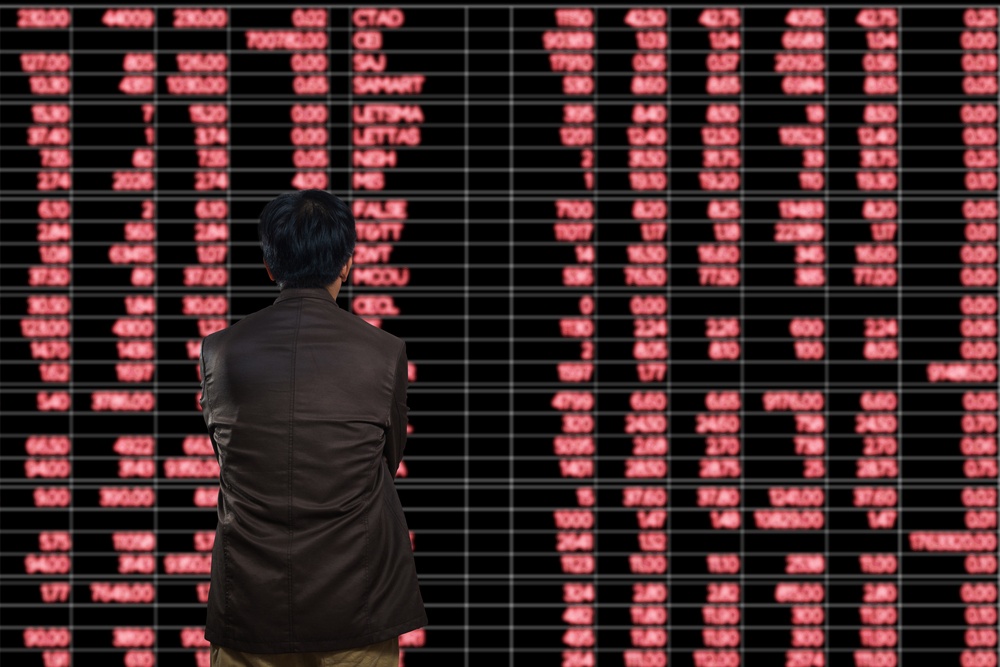Trade Wars, Brexit & a Weak 2019 Forecast: What’s Prompting Asian and European Markets to Decline?

Image: Shutterstock
By CCN.com: Asian and European markets opened Tuesday on a weaker note as the International Monetary Fund (IMF) warned about sluggish global growth in 2019.
Weak Chinese Market Forecasts
The Asian session primarily saw a slowdown in the Chinese economy. At 0625 UTC, the Shanghai Composite index was trading at 2579.669 points, down 1.15% from its open. The blue-chip CSI300 plunged 1.33% to 3143.3171 points in the same timeframe. The index’s financial sector dropped by 1%, while consumer staples fell 1.43%, and healthcare sub-index was down 2%.

The slowdown came in response to China’s economic growth forecasts released Monday. Beijing announced that its economy grew 6.6% in 2018, its weakest in the last 30 years. The global market had anticipated the poor outcomes due to China’s ongoing trade-war with the United States, its most significant trading partner.
According to The Caixin/Markit Manufacturing Purchasing Managers’ index (PMI) , a private survey, Chinse factories’ production metrics fell at the end of 2018. Export orders amidst the trade war also dropped, the survey found.
“That showed external demand remained subdued due to the trade frictions between China and the U.S., while domestic demand weakened more notably,” wrote Zhengsheng Zhong, director of macroeconomic analysis at Caixin’s CEBM Group.
Under President Donald Trump, the US government imposes taxes on aluminum, steel and hundreds of China-made products. Both Washington and Beijing are making attempts to reach a standard floor, with China’s trade negotiator Vice Premier Liu H scheduled to meet his US counterpart Robert Lighthizer on Jan 30.
UBS Scares of European Investors
European market also opened negative on Tuesday as disappointing results from UBS scared off investors. The biggest Swiss bank reported $13 billion worth of client outflow, with $7.9 billion reductions in assets managed by its wealth management unit. UBS blamed the slowdown in the global economy for its negative quarter performance. The bank’s stock tumbled 4%.
“The overall results for the year are clearly not satisfactory, to meet the goals we need to intensify efforts to attract and retain higher portions of our current and prospective clients’ assets,” chief executive Sergio Ermotti told FT. “We are taking commercial and responsible actions to mitigate the short term impact of difficult markets . . . and return to our trajectory of growth.”
The pan-European Stoxx 600 dropped a modest 0.2% to 356.47. France’s CAC 40 index was decreasing 0.1 percent at press time while UK’s FTSE 100 was declining 0.4 percent. Meanwhile, the German DAX dropped 1.10% to 11,084 points.

IMF Warns Policymakers of Slowdown
IMF on Monday drew inspirations from the weaker Chinese data while cutting down its global growth forecasts from 3.7% to 3.5% for 2019. The fund’s managing director, Christine Lagarde, said at the World Economic Forum that economics risks were rising due to the China-US trade war and rising Fed rates.
“Does that mean a global recession is around the corner,” she added. “No. But the risk of a sharper decline in global growth has certainly increased.”
A bright spot was India. In comparison to China, IMF found the sixth-largest Asian economy in a better position. The fund said the country could grow at 7.5% in 2019 and 7.7% in 2020. It also found that while the Chinese growth rate was on its way down, India experienced a surge.